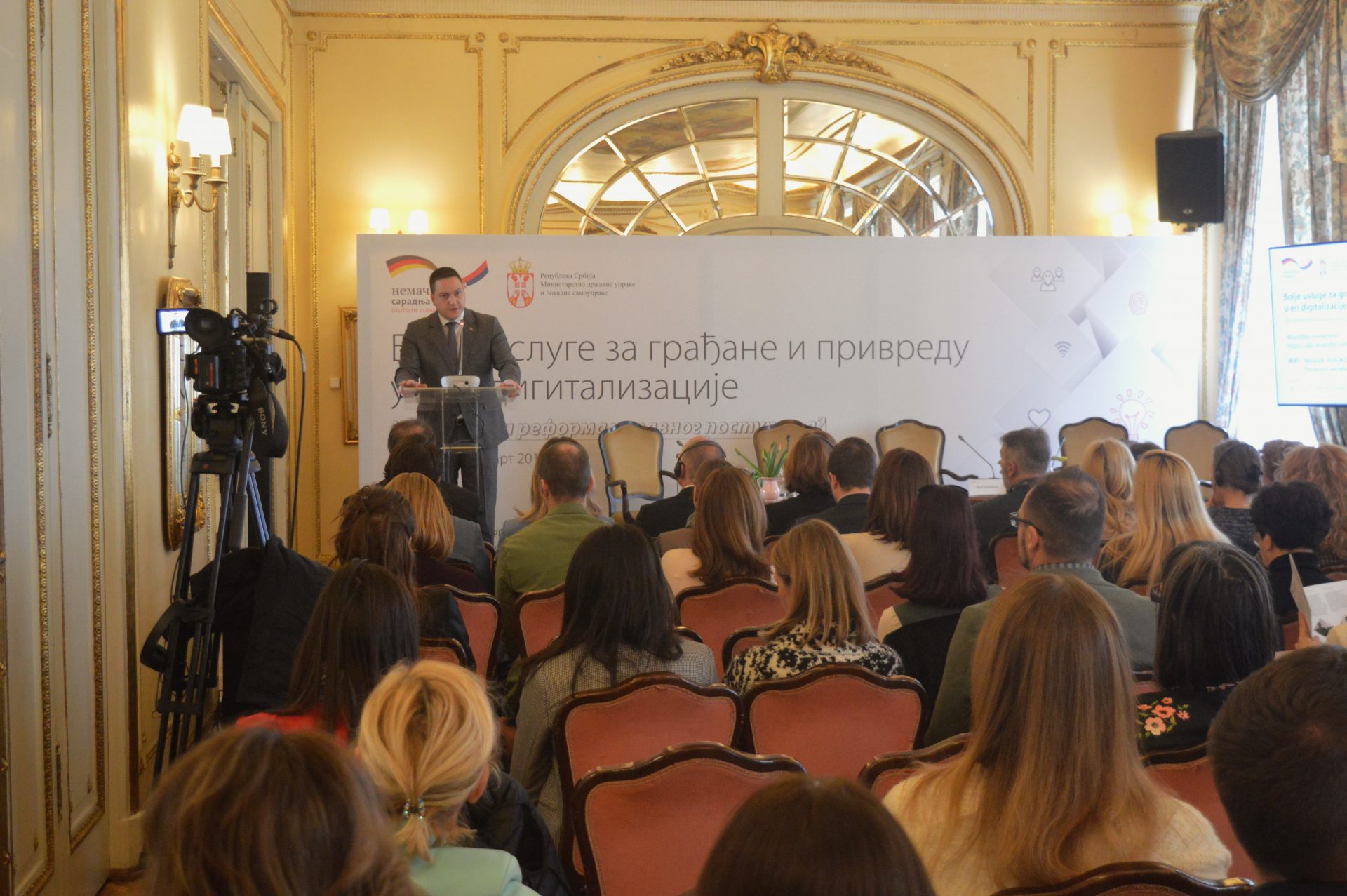
Administrative procedure reform is the basis for all other changes, for the purpose of creating a service which would be in service of citizens and economy, was the conclusion at today’s conference “Better services for citizens and economy in the era of digitalization – what does the administrative procedure reform bring?”
The meeting was organized by the Ministry of Public Administration and Local Self-Government and the German-Serbian development cooperation project “Support to Public Administration Reform in Serbia”, implemented by GIZ.
The Minister of Public Administration and Local Self-Government, Branko Ružić, pointed out that the first step towards the creation of an administration tailored to all of us, was the adoption of the Law on General Administrative Procedure, which allowed state bodies to collect and exchange data which are the subject of official records, instead of requesting citizens to submit them.
“We have stopped asking citizens to be our couriers and walk from one institution to another, waiting in lines for hours, wasting their money on unnecessary expenses. So far, we have already exchanged data through eZUP 1,400,000 times, without requesting them from our citizens”, said Ružić.
He pointed out that it was necessary to better inform citizens on the advantages of eZUP. He noted that 188 administrative procedures had been signed on the local level for the purpose of harmonisation of practice, in order to avoid differences in the actions of the administration in towns and municipalities of Serbia, as well as to better motivate towns and municipalities to address the needs of citizens.
Thomas Schieb, Ambassador of Germany to Serbia, said that Germany remained committed to supporting Serbia in its road to EU, adding that the public administration reform was one of the main reforms on Serbia’s road towards the European Union.
“Public administration reform remains highly placed in the plan for development cooperation between Germany and Serbia”, he said.
Alexandra Hilbig, Project Leader of the project “Support to Public Administration Reform in Serbia”, said that the objective of today’s conference was to support the debate on what was necessary and what can be done with respect to the approximation of services that the public administration provides to citizens, in order for such services to be simpler and more accessible to citizens.
On panels, representatives of state administration bodies, the judiciary, citizens associations, academic community and foreign experts talked about changes which were happening relating to the improvement of services for citizens and economic entities, challenges facing citizens and economic entities in their communication with the administration, and key preconditions for good results.
It was pointed out that the reform of administrative proceedings had been initiated in 2016, in order to ensure better legal security to citizens and businessmen, i.e. the objective was that there were to be no surprises in procedures, but to achieve the expected, uniform behaviour of everyone in the administration.
It was concluded that the objective of the reform of administrative proceedings was to resolve the problems of citizens by enforcing the laws.
As an example, it was pointed out that it had previously been necessary to submit seven documents in order to obtain maternity benefit, while today, thanks to the Law on General Administrative Procedure, the administration was becoming a public service for citizens, and required just one document.
The new Law on General Administrative Procedure, which has been in full effect since June 2017, is one of the pillars for the establishment of a modern and efficient public administration through optimisation, standardisation and digitalization of administrative procedures.



